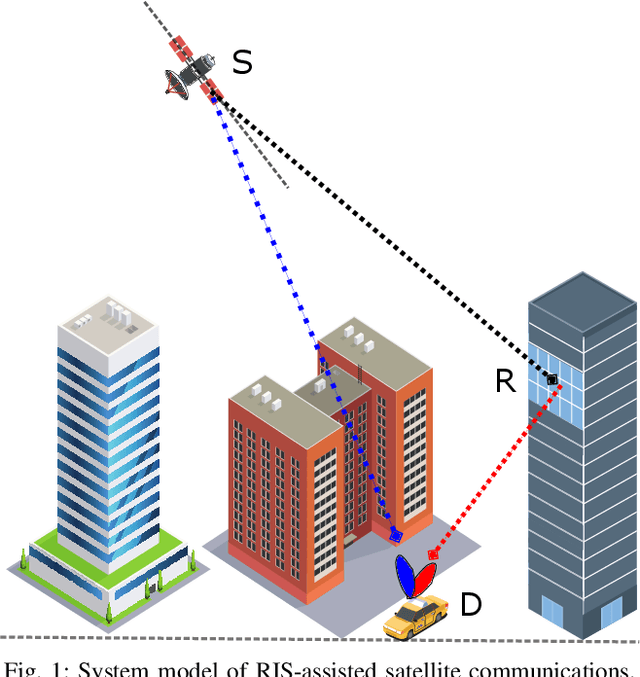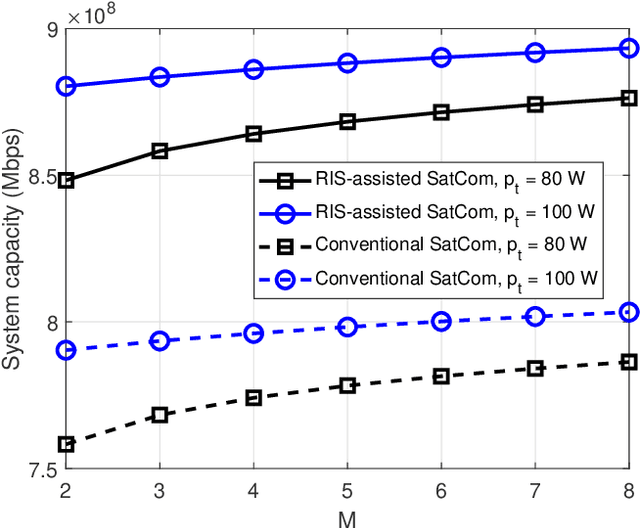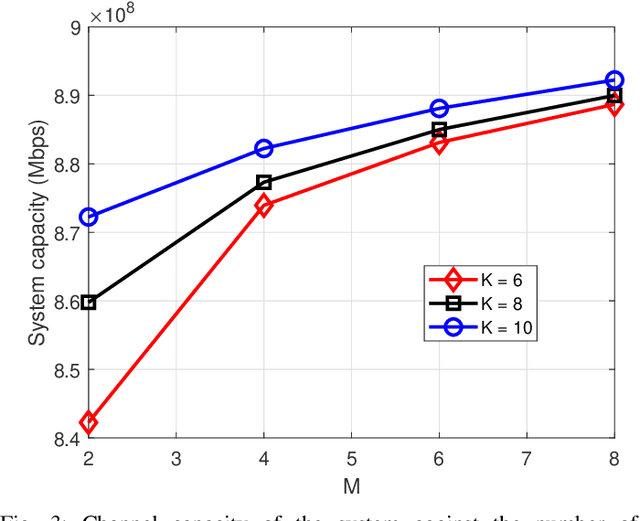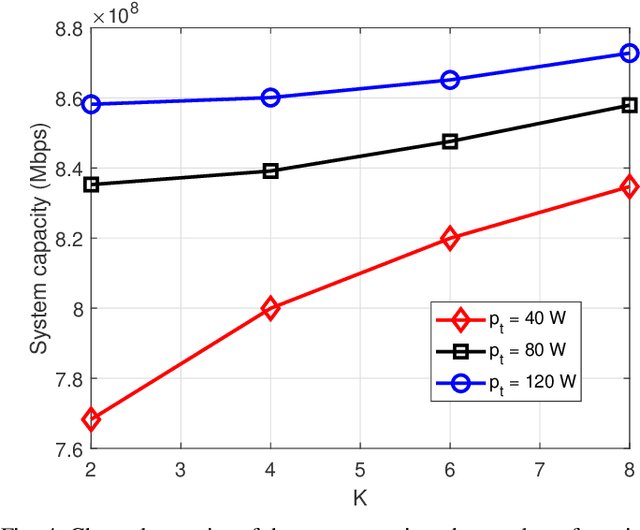When RIS Meets GEO Satellite Communications: A New Optimization Framework in 6G
Paper and Code
Feb 01, 2022



Reflecting intelligent surfaces (RIS) is a low-cost and energy-efficient solution to achieve high spectral efficiency in sixth-generation (6G) networks. The basic idea of RIS is to smartly reconfigure the signal propagation by using passive reflecting elements. On the other side, the demand of high throughput geostationary (GEO) satellite communications (SatCom) is rapidly growing to deliver broadband services in inaccessible/insufficient covered areas of terrestrial networks. This paper proposes a GEO SatCom network, where a satellite transmits the signal to a ground mobile terminal using multicarrier communications. To enhance the effective gain, the signal delivery from satellite to the ground mobile terminal is also assisted by RIS which smartly shift the phase of the signal towards ground terminal. We consider that RIS is mounted on a high building and equipped with multiple re-configurable passive elements along with smart controller. We jointly optimize the power allocation and phase shift design to maximize the channel capacity of the system. The joint optimization problem is formulated as nonconvex due to coupled variables which is hard to solve through traditional convex optimization methods. Thus, we propose a new $\epsilon-$optimal algorithm which is based on Mesh Adaptive Direct Search to obtain an efficient solution. Simulation results unveil the benefits of RIS-assisted SatCom in terms of system channel capacity.
 Add to Chrome
Add to Chrome Add to Firefox
Add to Firefox Add to Edge
Add to Edge